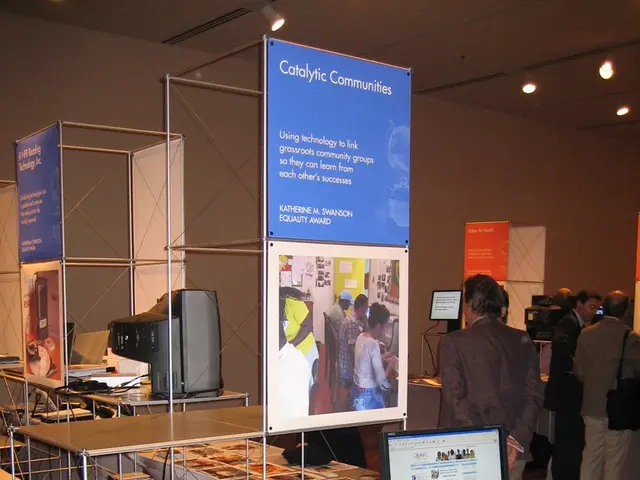Union representatives call for shutting down carbon credit businesses amidst tension in the trade sector
In the heart of Europe, industrial giants are grappling with a common challenge—rising costs associated with CO2 emissions. The German chemical company, Ineos, based in Cologne, is one such example, facing a staggering disadvantage of 40 million euros in electricity imports, 100 million euros for gas purchases, and another 100 million euros for CO2 certificates.
This cost disadvantage is not an isolated case. Many European companies are facing similar struggles, a norm that has been highlighted by the Industrial Union of Chemicals, Energy, Mineral Oil and Gas (IGBCE). The chairman of IGBCE, Michael Vassiliadis, has called for emergency aid from the federal government to prevent plant closures, with more than 260 companies in Germany cutting jobs, affecting around 28,000 employees.
The root of this issue lies in the EU's CO2 emissions trading system. This system sets a maximum amount of CO2 that industry can emit, and issues certificates for this legal maximum. The goal is to create incentives to emit less CO2. Companies that emit less than allowed can sell their excess certificates, while those that emit more have to buy more.
However, the system has been criticised for being a competitive disadvantage for member states. Vassiliadis argues that a ton of CO2 costs significantly less in China and Japan compared to Europe. The scarcity of CO2 certificates, expected to drive up their prices from 2026, is further exacerbating the problem.
The industrial sector in Germany is particularly affected. Production levels are 20% below what they were 3.5 years ago, largely due to the war in Ukraine. Energy-intensive industries such as steel, cement, chemicals, and refineries are hit hardest. Increased CO2 prices directly raise production costs at the manufacturing stage, leading to higher prices for fuels like diesel and gasoline. From 2025 onwards, these increased costs are expected to significantly impact production economics.
The production stage is influenced by increased expenses for CO2 emissions certificates, which are expected to nearly double in price by 2026. This could cause cost increments of approximately 7 to 9 euros per 100 liters for various fuels due to elevated greenhouse gas quota requirements and stricter regulations.
Vassiliadis believes that the current practice is harmful to businesses and warns of industrial value creation that is being lost forever. Emergency aid could include exemption from the mandatory emissions trading or increased allocation of free certificates.
Interestingly, in the United States, there is no trading in emission certificates, a factor that could provide a competitive advantage for American industries in the future.
As the EU continues to strive for a greener future, the challenge lies in finding a balance between environmental goals and industrial sustainability. The IGBCE's call for emergency aid serves as a reminder of the delicate balance that needs to be maintained.
Read also:
- Peptide YY (PYY): Exploring its Role in Appetite Suppression, Intestinal Health, and Cognitive Links
- Toddler Health: Rotavirus Signs, Origins, and Potential Complications
- Digestive issues and heart discomfort: Root causes and associated health conditions
- House Infernos: Deadly Hazards Surpassing the Flames




